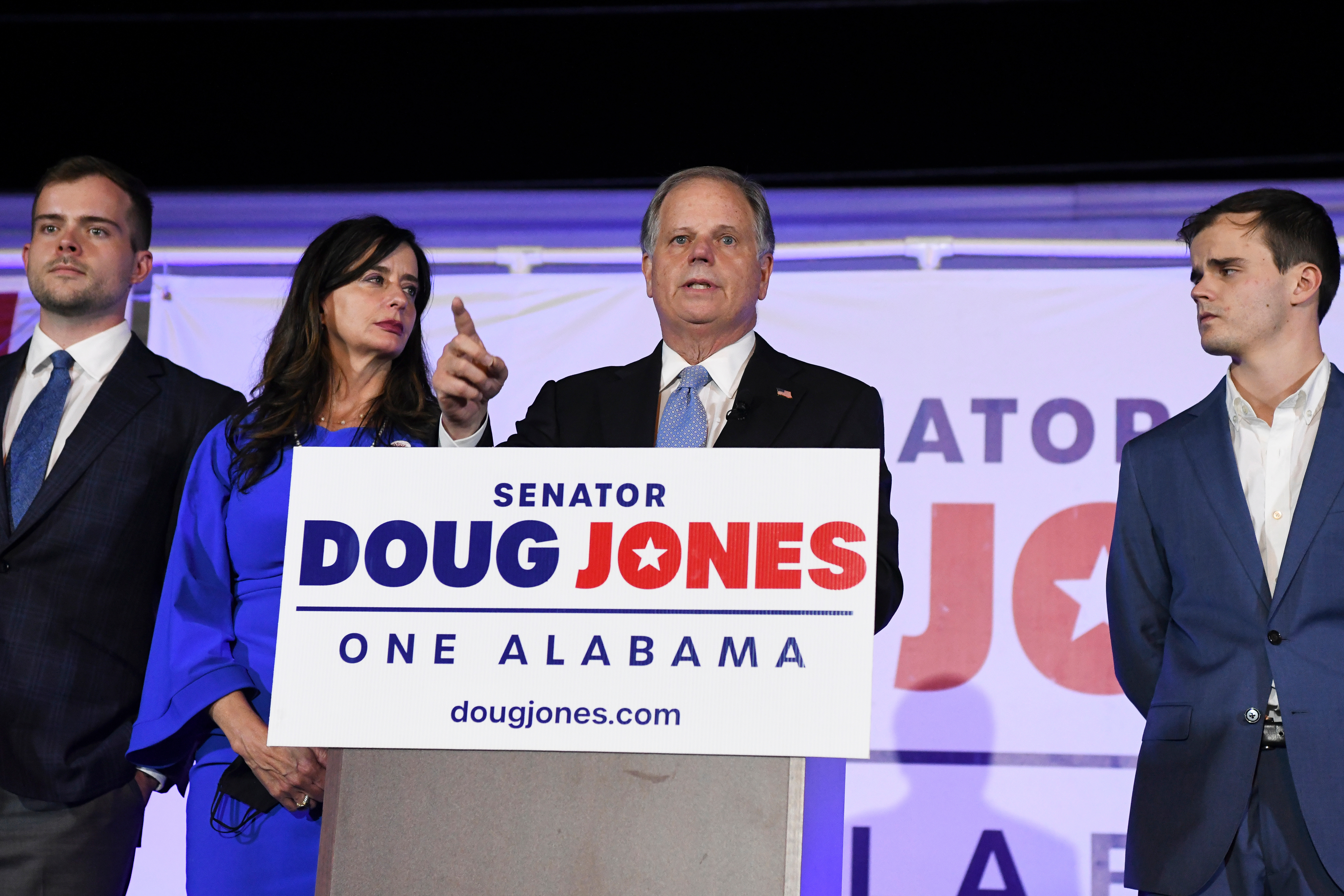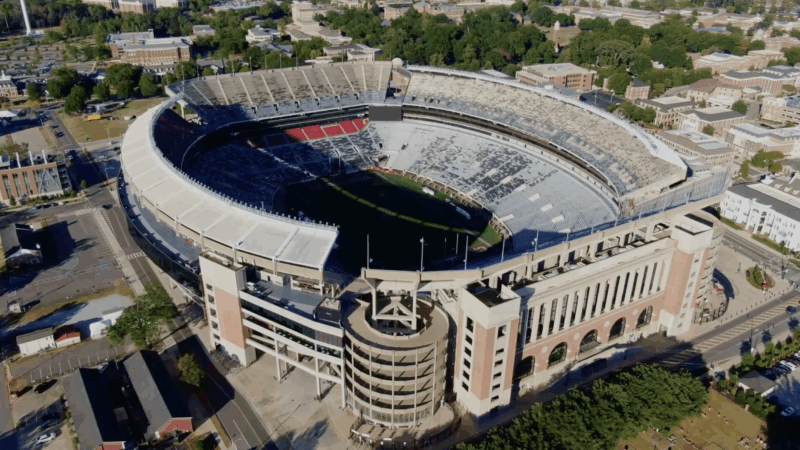Lawmakers advance religious bills including school Ten Commandments displays
It’s no secret that Alabama is among the most religious states. It’s also no stranger to fights over displays of the Ten Commandments. The state may be gearing up for another one as the Alabama House passed a bill Thursday that would require public schools to display the Ten commandments. We hear details on that from Todd Stacy, host of Capital Journal and Alabama Public Television.
This interview was edited for length and clarity.
People might remember the controversy over Roy Moore and the Ten Commandments display in a state judicial building, but what is this bill pertaining to schools outline?
We are well versed in Ten Commandments battles going back to Roy Moore and the removal of his monument from the judicial building. This would apply to public schools, both the K-12 schools and community colleges in Alabama. It would require those institutions to display some version of the Ten Commandment in a public place. It doesn’t say exactly where, but you can imagine the lobby or wherever. And so that bill has now passed the House and will head to the Senate. Not certain that it’ll receive final passage. [It’s] getting pretty late in the session, but just getting House passage is pretty significant.
Louisiana passed a similar bill that’s tied up in the courts. Are there any provisions for trying to make it past legal muster?
That’s obviously the question. There will be lawsuits. The sponsor of the bill says he’s confident it can withstand a judicial review. But we’ll just have to see. I think everybody understands that there are limits to what you can do with regard to religion in public spaces and in particular public schools. So we’ll see. That it’s not the only bill that will probably be challenged judicially.
With that in mind, a bill is making its way through the legislature that would require a school district to accommodate religious instruction during the school day. Give us the overview of what this bill sets up.
This is interesting because we already have this system. We already have a system of where local schools can, if they want to, allow high school students, juniors and seniors, to arrange to leave campus to take a religious instruction course from some institution. It’s a legit instructional course, but it’s religious-based. That is already existing. What this bill would do would be to require school districts, school boards in particular, to set that policy and require them to set a policy by where students could go and take those religious courses off campus.
Interestingly, this bill failed a committee vote last week. And so that was the House version of the bill. The House Education Policy Committee said, no, we don’t want to, the system in place is working fine. We don’t wanna require anything else of school boards. But that didn’t sit well with the lieutenant governor. Lt. Gov. Will Ainsworth threw his weight behind this bill, came out and supported it and said he wants to pass it through the Senate. And that led to the very same bill, just the Senate version of it, passing a Senate committee this week. It’s ready for the floor. I don’t know if they’ll have time to pass it, but not exactly uniform support on this, even from Republicans who typically like the kind of thing.
Finally, a proposed constitutional amendment is through a House committee which would require the Pledge of Allegiance be recited in schools. It also includes provisions allowing prayer in schools. Now I imagine plenty of schools already recite the pledge, so what does this bill do?
Right. It does require that. I can remember growing up saying the pledge on the morning announcements. I imagine that’s still the case in many schools now. But yes, this would require the recitation of the Pledge of Allegiance, but also require prayer to be led in some way or another.
Now, this bill has been kind of pared back and amended. Originally, the thought was, okay, after the pledge, then you have a prayer like on the morning announcements. It’s really not that. It’s really more requiring schools to create spaces where prayers can take place. It can be any religion. It’s not just Christian prayer. And so it’s not exactly as publicly-led and all of that, but to provide spaces for prayers to be conducted.
As you mentioned, it’s a constitutional amendment. It would go before voters. So this is only the first step. Again, it goes into some of those constitutional issues that surely will be raised should this pass and should voters approve it.
And correct me if I’m wrong, this has a penalty of losing state funding, school funding, if the pledge isn’t given.
That’s right. Yeah, there there are teeth in the in the bill. And so the sponsor says that’s important because you know, they don’t want to just pass a law only to have schools ignore it. And that does happen from time to time.
Auburn tabs USF’s Alex Golesh as its next coach, replacing Hugh Freeze on the Plains
The 41-year-old Golesh, who was born in Russia and moved to the United State at age 7, is signing a six-year contract that averages more than $7 million annually to replace Hugh Freeze. Freeze was fired in early November after failing to fix Auburn’s offensive issues in three seasons on the Plains.
Alabama Power seeks to delay rate hike for new gas plant amid outcry
The state’s largest utility has proposed delaying the rate increase from its purchase of a $622 million natural gas plant until 2028.
Former U.S. Sen. Doug Jones announces run for Alabama governor
Jones announced his campaign Monday afternoon, hours after filing campaign paperwork with the Secretary of State's Office. His gubernatorial bid could set up a rematch with U.S. Sen. Tommy Tuberville, the Republican who defeated Jones in 2020 and is now running for governor.
Scorching Saturdays: The rising heat threat inside football stadiums
Excessive heat and more frequent medical incidents in Southern college football stadiums could be a warning sign for universities across the country.
The Gulf States Newsroom is hiring an Audio Editor
The Gulf States Newsroom is hiring an Audio Editor to join our award-winning team covering important regional stories across Mississippi, Alabama and Louisiana.
Judge orders new Alabama Senate map after ruling found racial gerrymandering
U.S. District Judge Anna Manasco, appointed by President Donald Trump during his first term, issued the ruling Monday putting a new court-selected map in place for the 2026 and 2030 elections.









